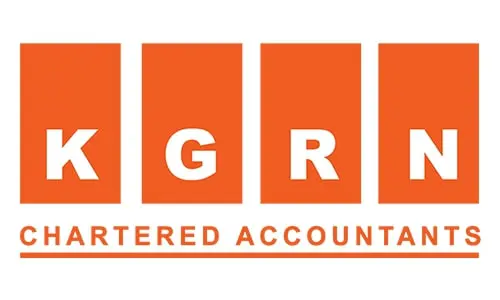The United Arab Emirates encourages both domestic and foreign investors to establish businesses across the country. Abu Dhabi is one of the most prosperous emirates in the region . If all the forms are properly completed and all the required permissions are acquired, company registration in Abu Dhabi is quite easy and quick. If they join with a local investor or choose one of Abu Dhabi’s free zones that permits 100% foreign ownership, foreign investors may also register businesses there. You can incorporate a business in Abu Dhabi with the aid of our Dubai company formation specialists.
Local and international investors should take the following actions when starting a new business in Abu Dhabi: get the Department of Planning and Economy’s approval for your trade name, sign a tenancy agreement, a partnership agreement, or a services agency agreement that requires notarization, and apply for a licence with the appropriate body. The Chamber of Trade and Industry in Abu Dhabi must receive all of the aforementioned documents as well as any additional pertinent data.
Which Business Entities Must Be Registered in Abu Dhabi?
In order to form a business in Abu Dhabi, international investors have two options: either a free-zone corporation with 100% foreign ownership, or one in which they must partner with a local. One may register under the heading of “wholly foreign-owned companies”: professional services firm, branch office, representative office, free zone limited liability corporation.
The following business models are also eligible for registration in Abu Dhabi:
Limited Liability Companies, General and Limited Partnerships, Private and Public Joint Stock Companies, Sole Proprietorships, Subsidiaries, and Banch Offices are all examples of business structures. For information on the UAE’s Companies Law, you can rely on our experts in Dubai.
What Varieties of Business Licences Are Available in Abu Dhabi?
For investors establishing businesses in the Emirate, Abu Dhabi offers six different types of business licences. As follows:
- the commercial licence for carrying out business operations; the agricultural licence; the professional licence for people engaged in physically demanding occupations like carpentry or masonry; the occupational licence for consultants, attorneys, and journalists; the industrial licence; and the tourism licence.
- Opening a branch in Abu Dhabi
Establishing a branch in the UAE, particularly in Abu Dhabi, the nation’s capital, gives foreign businesses the chance to grow their operations there. If the incorporation is done in the free trade zones of Abu Dhabi, foreign investors are allowed to have 100% ownership in the branch they intend to register, with the caveat that such a structure must engage in similar activities as in the country of origin.
Due to the branch’s need on the parent business under this structure, all operations must be reported to the parent firm. It’s crucial to understand that the Ministry of Economy grants permissions for opening branches in Abu Dhabi. After the name is confirmed and a reservation is obtained, the Articles of Organization must be written and filed to the local Trade Registration.
The Certificate of Incorporation will be issued by the Department of Economic Development in Abu Dhabi if all the required paperwork are approved. We advise you to speak with one of our experts in Dubai business formation rather than dealing with the requirements for opening a branch there.
The Creation of a Subsidiary in Abu Dhabi:
For foreign business owners who desire to expand their operations in the UAE, subsidiaries are autonomous legal companies that are simple to set up in Abu Dhabi. Due to a number of benefits, including quick formation, a flexible structure, and no personal liability for LLC commitments for owners, private or public limited liability companies are the most popular forms for setting up a subsidiary in Abu Dhabi.
The Articles of Organization, which contain details about the owners, their nationalities, the activities of the company, voting rights, general rules, and much more, are the primary documents for subsidiaries, just like they are for branches. Foreign businessmen interested in establishing subsidiaries in Abu Dhabi should contact one of our company formation agents in Dubai for further information and specifics.
Abu Dhabi VAT Registration
A standard rate of 5% was set for the VAT when it was first implemented in the UAE in January 2018; it was levied on a limited number of goods and services that were offered for sale and paid for by the final consumer. If foreign corporations with Abu Dhabi locations want to offer various goods on the market, they must register for VAT. If the value of the imported items exceeds AED 187,500 per year, the same requirement for VAT registration is placed on the businesses importing the goods into Abu Dhabi.
The VAT is levied and collected from the end customers before being paid to the Abu Dhabi financial authorities. Feel free to contact one of our company formation agents in Dubai for further details on how to file for VAT. They can support you in dealing with the appropriate Abu Dhabi authorities and paperwork preparation.
Can I set up shop in Abu Dhabi as a Representative?
A representative office is a viable option for foreign business owners looking to enter the Abu Dhabi market. Although these offices are not permitted to conduct financial operations, they are permitted to establish a variety of marketing and promotion strategies in order to research the industry in which your firm will operate and to forge relationships and alliances with possible clients and partners. Setting up a representative office in Abu Dhabi and promoting your company there is relatively simple, however consulting with one of our advisers is advised.
Purchasing Property in Abu Dhabi
The UAE is a highly sought-after business location for international players who want to prosper in this region of Asia and have access to a favourable and stable atmosphere for a variety of operations. The capital of the United Arab Emirates, Abu Dhabi, is a significant and reliable financial hub that is home to several firms and organisations active in the financial and services industry, tourism, insurance, engineering, IT & communication, research & development, healthcare, etc.
You can find the UAE to be highly alluring for business and financial gain as one of the greatest financial centres in the Middle East. Following are some statistics pertaining to the business and economic climate in the UAE: In 2018, the UAE registered nearly USD 140,000 million in FDI stock, 378 greenfield investments, and a total of FDI stock of USD 140,000 million. According to the World Bank’s 2020 Doing Business report, the UAE ranks 16th out of 190 economies in the world. Foreign investors particularly value the UAE’s diversified economy and low energy costs.







